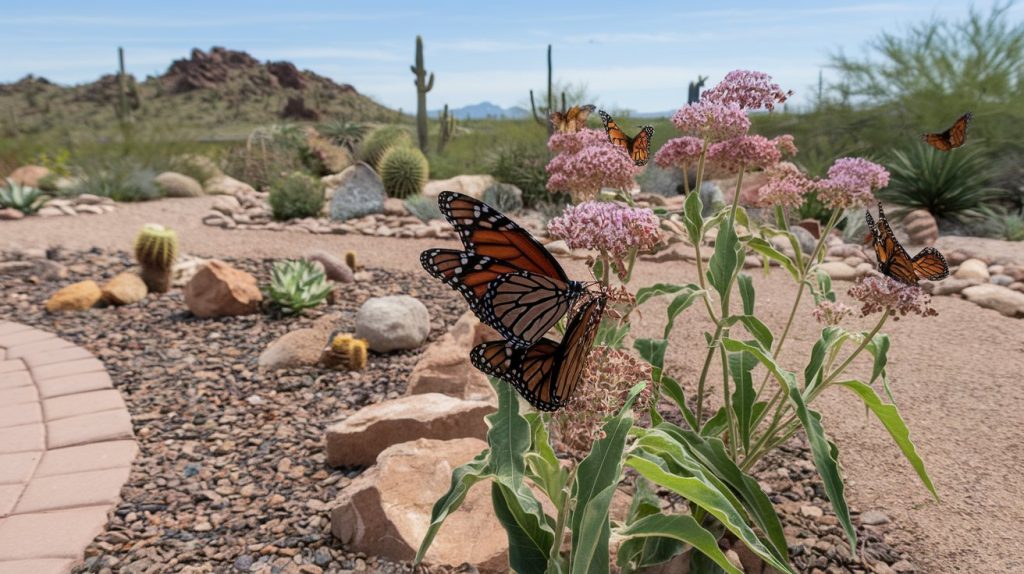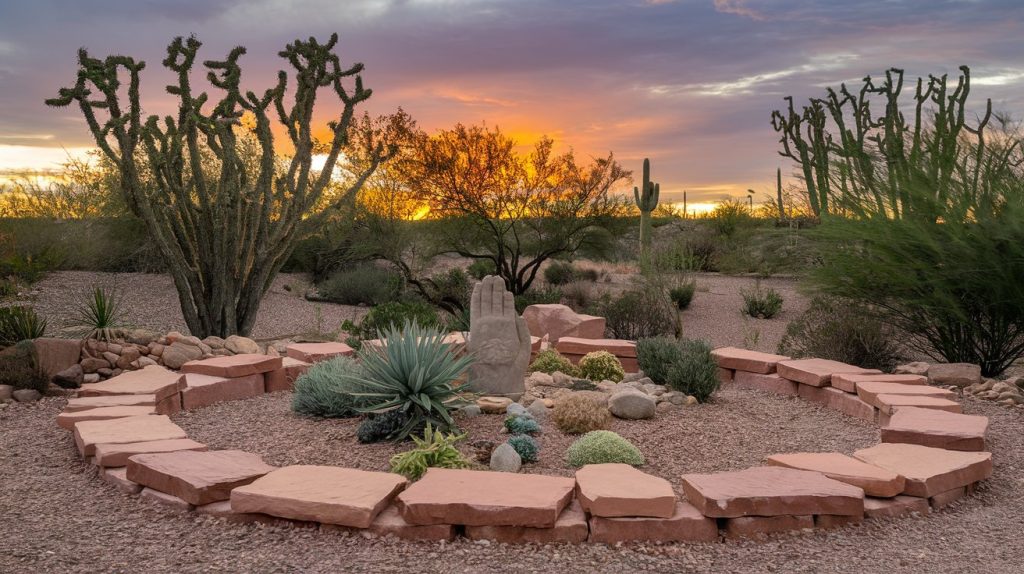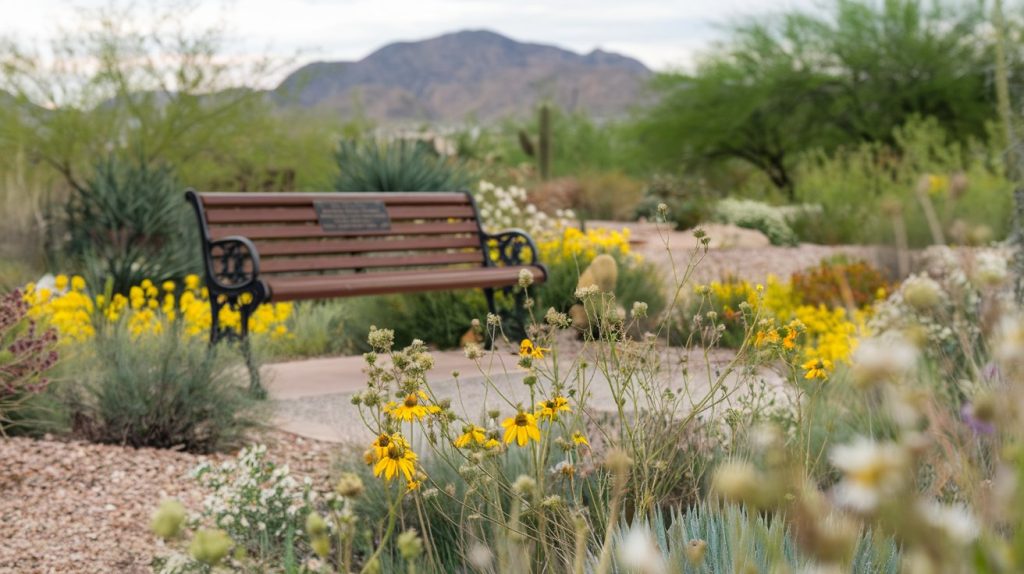
Over my years of helping families create lasting tributes in Tucson’s unique environment, I’ve discovered that desert sympathy gardens can be extraordinarily beautiful and meaningful when properly planned. Let me share what I’ve learned about creating these special spaces that honor loved ones while embracing our desert setting.
Understanding Desert Garden Fundamentals
My first desert sympathy garden taught me that success starts with embracing, rather than fighting, our unique environment.
Climate Considerations
Essential factors include:
- Extreme temperature variations
- Limited natural rainfall patterns
- Intense sun exposure
- Seasonal wind patterns
- Frost pocket locations
Soil Characteristics
I’ve learned about:
- Native soil composition
- Drainage requirements
- Organic matter balance
- Mineral content needs
- pH considerations
Choosing Appropriate Plants
Plant selection makes the difference between a thriving memorial and constant maintenance.
Native Plants for Success
Reliable choices include:
- Penstemon varieties for color
- Desert marigolds for ongoing blooms
- Fairy duster for delicate beauty
- Globe mallow for resilience
- Native salvias for fragrance
Desert-Adapted Non-Natives
Successful additions often include:
- Bougainvillea for dramatic color
- Lantana for persistent blooms
- Rosemary for remembrance
- Lavender for scent
- Aloe for structure
Design Principles for Memorial Gardens

Experience has taught me how to create spaces that feel both natural and intentional.
Layout Considerations
Important elements include:
- Natural gathering spaces
- Contemplation areas
- Shade incorporation
- View preservation
- Wildlife attraction
Symbolic Elements
Meaningful additions often include:
- Memorial benches
- Rock arrangements
- Water features
- Prayer flags
- Memory stones
Practical Installation Guidelines

Proper installation ensures long-term success in our challenging climate.
Timing Considerations
I recommend:
- Fall planting for most species
- Spring additions for heat-lovers
- Winter prep for summer success
- Monsoon timing for natives
- Frost-sensitive planning
Technical Requirements
Essential elements include:
- Proper irrigation systems
- Drainage solutions
- Root development space
- Soil preparation
- Mulching techniques
Creating Sustainable Gardens
Long-term success requires planning for sustainability.
Water Conservation
Key strategies include:
- Rainwater harvesting
- Grey water utilization
- Proper plant grouping
- Mulch application
- Efficient irrigation
Maintenance Planning
Important considerations:
- Seasonal care schedules
- Pruning requirements
- Fertilization needs
- Pest management
- Growth patterns
Incorporating Memorial Elements
Personal touches transform a garden into a living memorial.
Natural Elements
Consider including:
- Local stone markers
- Native wood benches
- Desert crystal displays
- Indigenous arts
- Local ceramics
Personal Tributes
Meaningful additions often include:
- Family plant selections
- Meaningful sculptures
- Memory journals
- Photo elements
- Cultural symbols
Seasonal Color Planning
Creating year-round interest requires careful planning.
Winter Interest
Reliable choices include:
- Penstemons for winter color
- Desert marigolds for cool blooms
- Native grasses for texture
- Evergreen succulents
- Cold-hardy cacti
Summer Drama
Heat-loving options:
- Bougainvillea displays
- Bird of paradise blooms
- Flowering senna
- Desert willows
- Coral fountain
Wildlife Attraction
Gardens become more meaningful when they support desert life.
Bird Attraction
Successful elements include:
- Native berry plants
- Natural water features
- Seed-producing flowers
- Protective thorny shrubs
- Multiple canopy layers
Butterfly Gardens
Key components:
- Monarch host plants
- Native nectar sources
- Puddle areas
- Sun-warmed rocks
- Shelter plants
The most important lesson I’ve learned about desert sympathy gardens is that they’re not just memorials – they’re living, growing spaces that continue to bring comfort and connection. When we work with our desert environment, these gardens become sustainable sanctuaries that honor both our loved ones and our remarkable Sonoran Desert home.
